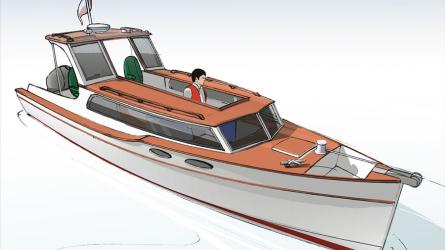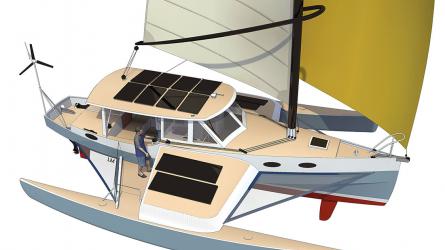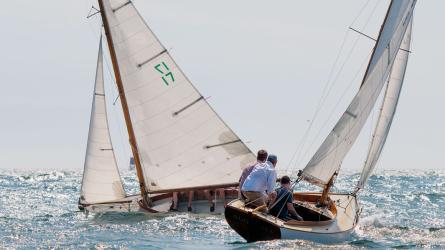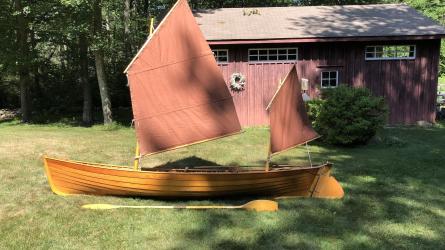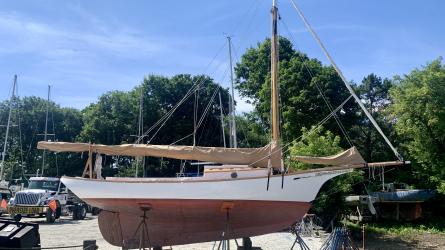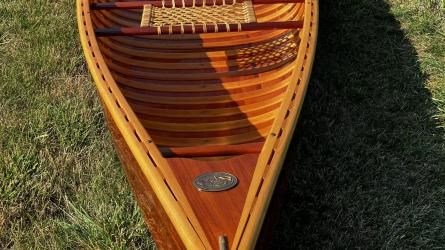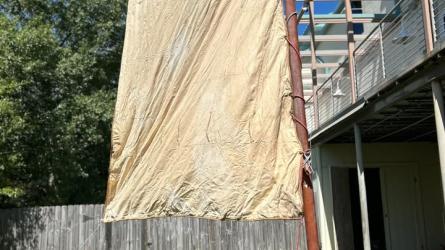November / December 2019
Unsung Heroes

Wilmington Boat Works of California built eight 85’ crash boats for the U.S. Army Air Forces, including P–520 of 1944, seen here in 2019 running at about 12 knots near Long Beach. Bob Tretter led an eight-year project to restore her appearance and outfit to the greatest extent possible, drawing on his own wartime experience in the crash boat service.
The most amazing thing happened,” says Jerry Tretter. The year was 2005 and Tretter, his father, Bud, and a crew had taken their restored 85' Army Air Forces crash boat P–520 from their home in Long Beach, California, to Puget Sound to lead a parade of tall ships. After the parade, as the boat and crew were sitting dockside, all manner of World War II and Korean War veterans started coming aboard to share their memories of crash boats.
“We had one crash boat sailor from WWII, and he was telling us how during his time in the South Pacific his crash boat rescued any and all aviators, American or Japanese, that ditched at sea. The next thing I knew, an elderly Japanese man came aboard. He had been a pilot downed in a dogfight and rescued by a U.S. Army Air Forces crash boat. Turns out the American vet who was telling us his crash boat stories was on the same boat that rescued the Japanese flyer. There were a lot of hugs, a lot of tears. A reunion like that after all those years. What are the chances? Unbelievable.”
If the Tretters ever had any second thoughts about committing eight years and over a million dollars to restore P–520 (see sidebar “Up For Grabs,” page 28), this reunion of former enemies made all their efforts and the expense seem worth it.
Before helicopters took over the job of air-sea rescue in the mid-1950s, crash boats and amphibious aircraft such as the Navy’s PBY were the primary tools for saving lives at sea. During WWII, crash boats rescued thousands of aviators and shipwrecked sailors. In the Korean War, crash boat missions became even more diverse. Yet today the crash boat service is at best an asterisk when it comes to an inventory of small-boat contributions to the war efforts. PT boats get all the glory. Their combat missions were primarily offensive exercises. Crash boats’ missions were generally defensive.
To read the rest of this article:
Click the button below to log into your Digital Issue Access account.
No digital access? Subscribe or upgrade to a WoodenBoat Digital Subscription and finish reading this article as well as every article we have published for the past 50+ years.
ACCESS TO EXPERIENCE
Subscribe Today
1 YEAR SUBSCRIPTION (6 ISSUES)
PLUS ACCESS TO MORE THAN 300 DIGITAL BACK ISSUES
DIGITAL $29.00
PRINT+DIGITAL $42.95
Subscribe
To read articles from previous issues, you can purchase the issue at The WoodenBoat Store link below.
 Purchase this issue from
Purchase this issue from





